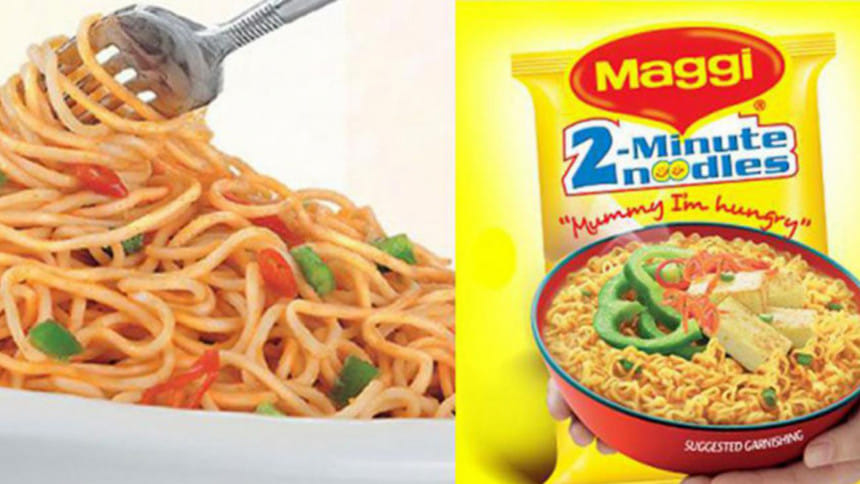India bans Maggi after safety scare

India's food safety regulator today banned Nestle from making and selling its hugely popular Maggi instant noodles, calling them "unsafe" and "hazardous" after tests found they contained excessive lead.
The Food Safety and Standards Authority of India (FSSAI) said it was ordering Nestle to halt manufacturing after tests by some states found lead levels above statutory limits.
Nestle, which denies the charges and says the noodles are safe to eat, had already announced it was pulling the product from sale as it seeks to contain growing safety concerns.
An FSSAI statement said it was ordering Nestle India to "withdraw and recall all the nine approved variants of its Maggi Instant Noodles from the market... and stop further production".
It said tests had found the noodles to be "unsafe and hazardous for human consumption".
Nestle, which says the lead content in its Maggi noodles is well below the limit, had already announced it would withdraw the product from sale as it tries to contain the growing scandal.
On Friday its global chief executive Paul Bulcke said the product was "safe for consumption".
"We decided to take off the noodles from the shelves as there was confusion about the safety," he said at a press conference in New Delhi.
"The safety of our consumers is paramount. We are working with the authorities to clear up this confusion."
At least six states including India's capital have announced temporary bans on the sale of the instant noodles in the past few days, after officials said test results showed high lead levels.
The FSSAI said the presence of lead "beyond permissible levels" could make the product "unsafe and hazardous", citing risks of damage to the kidneys and the nervous system.
Activists in the eastern city of Kolkata on Thursday burned packets of the noodles in protest, underscoring the scale of public anger.
Nestle has been selling its Maggi brand for over three decades in India, and has 80 percent of the country's instant noodle market.
CELEBRITY BACKERS
The product -- marketed as a quick and healthy snack -- grew increasingly popular as more and more Indians moved away from their homes to study or seek work.
It emerged as one of India's five most trusted brands in a consumer survey conducted last year.
Several celebrities have endorsed Maggi over the years, including Bollywood superstar Amitabh Bachchan.
The scare met with a mix of outrage and disappointment in India, where it was one of the top trending topics on Twitter on Friday.
Many users welcomed the ban and the best-selling novelist Chetan Bhagat tweeted that Maggi was "junk being sold as emotional nectar to Indians daily".
Others defended the product and said they had been eating it for decades with no ill effects.
"My work often involves travel and odd hours, which over the years made Maggi my favourite snack," 30-year-old IT worker Puneet Raheja told AFP.
"I think that this controversy will soon blow over."
The scare began when food inspectors in Uttar Pradesh said they had found high lead levels in two dozen Maggi noodle packets during routine testing, along with the flavour enhancer MSG (monosodium glutamate), which is not listed in the ingredients.
The state last weekend filed a criminal complaint against Nestle India over the findings, while a separate legal petition was filed against Bollywood stars who have advertised the noodles.
Nestle has said it does not use MSG in its Maggi products sold in India, but that glutamate is a naturally occurring substance and may be present in some of the ingredients.
The FSSAI said Nestle had disputed the conclusions on the basis that the noodles and flavouring were tested separately, even though they are consumed together.
Shares in Nestle India, the subsidiary of the Swiss giant, fell nine per cent on the Bombay Stock Exchange on Wednesday as the crisis escalated.
The company, which markets a huge range of food items from Nescafe instant coffee to KitKat bars, said Maggi noodles would return to the market "as soon as the current situation is clarified".

 For all latest news, follow The Daily Star's Google News channel.
For all latest news, follow The Daily Star's Google News channel. 



Comments